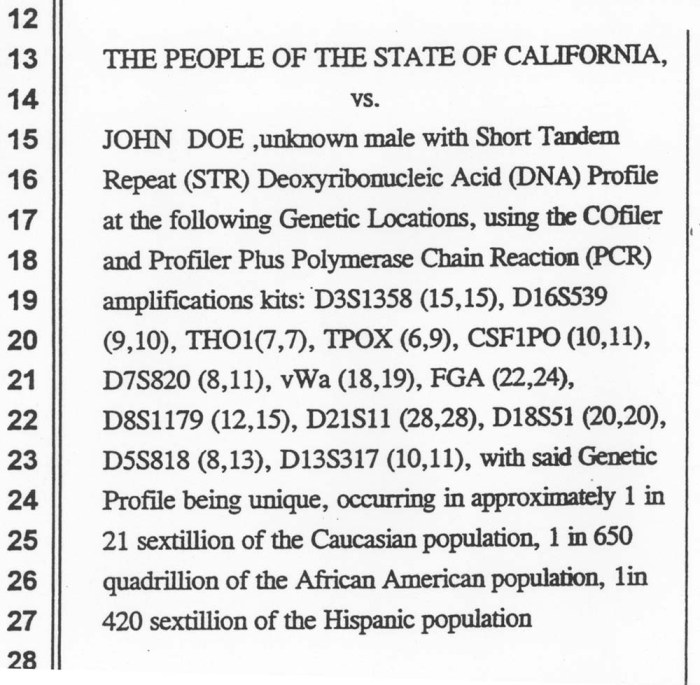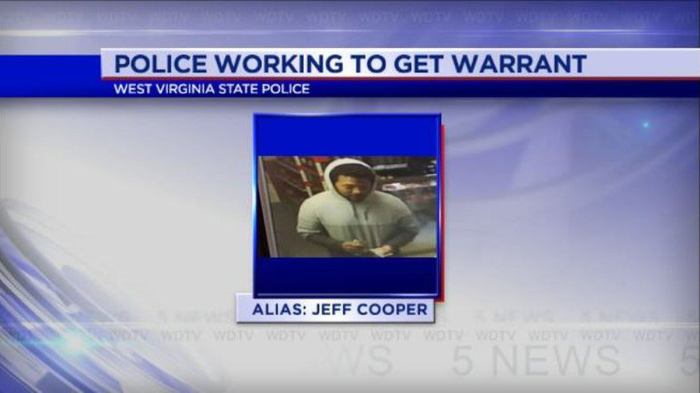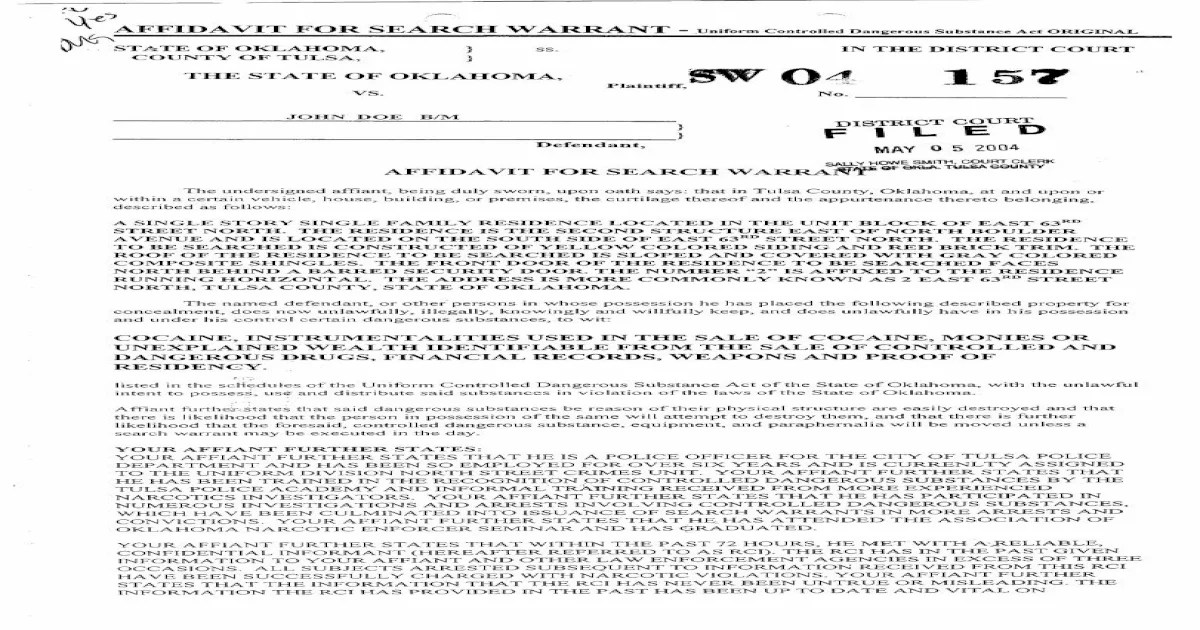John doe warrant of arrest – John Doe warrants of arrest are legal documents issued by law enforcement to apprehend individuals suspected of committing crimes. They serve as powerful tools for maintaining public safety and ensuring justice, but also raise important constitutional considerations. This comprehensive guide will delve into the intricate world of John Doe warrants of arrest, exploring their definition, legal implications, and potential consequences.
Obtaining a John Doe warrant of arrest involves a rigorous process that safeguards individual rights. Law enforcement must present compelling evidence to a judge or magistrate, demonstrating probable cause that a crime has been committed and the suspect poses a threat to society.
The judiciary plays a crucial role in reviewing the evidence and determining whether the warrant should be issued.
Definition of Warrant of Arrest

A warrant of arrest is a legal document issued by a judge or magistrate that authorizes law enforcement officers to arrest an individual.
The purpose of a warrant of arrest is to ensure that the arrest is lawful and that the person arrested is the correct person. A warrant of arrest is required before an arrest can be made, unless there is probable cause to believe that the person has committed a crime and the person is fleeing or is about to flee.
While a warrant for John Doe’s arrest has been issued, a recent EEG examination suggests a state of altered consciousness , raising questions about his mental state at the time of the alleged offense. As the investigation continues, the warrant remains active, and authorities urge the public to provide any information that could lead to his apprehension.
Constitutional Protections Related to Warrants of Arrest
The Fourth Amendment to the United States Constitution protects against unreasonable searches and seizures. This protection extends to arrests, as an arrest is a seizure of the person. The Fourth Amendment requires that a warrant be issued before an arrest can be made, unless there is probable cause to believe that the person has committed a crime and the person is fleeing or is about to flee.
Procedure for Obtaining a Warrant of Arrest

Obtaining a warrant of arrest involves a series of steps that require the collaboration of law enforcement and the judiciary. This process is essential to ensure that individuals are not unlawfully detained or arrested without sufficient probable cause.
Role of Law Enforcement
Law enforcement officers play a crucial role in the initial stages of obtaining a warrant of arrest. They gather evidence and information to establish probable cause, which is a reasonable belief that a crime has been committed and that the suspect is responsible.
Officers may conduct interviews, collect physical evidence, and consult with witnesses to build a strong case.
Role of the Judiciary, John doe warrant of arrest
Once law enforcement has gathered sufficient evidence, they present their findings to a judge or magistrate. The judge reviews the evidence and determines whether there is probable cause to believe that a crime has been committed and that the suspect should be arrested.
If the judge finds probable cause, they issue a warrant of arrest, which authorizes law enforcement to apprehend the suspect.
Scope and Execution of a Warrant of Arrest: John Doe Warrant Of Arrest

A warrant of arrest is a legal document that authorizes law enforcement officers to arrest an individual. It specifies the charges against the individual and the scope of the arrest.
The scope of a warrant of arrest is limited to the specific charges listed in the warrant. Officers cannot arrest the individual for any other charges unless they obtain a separate warrant.
Execution of a Warrant of Arrest
To execute a warrant of arrest, officers must first locate the individual. Once they have located the individual, they must identify themselves as law enforcement officers and state that they have a warrant for the individual’s arrest.
The individual is then taken into custody and transported to the nearest jail or police station. At the jail or police station, the individual will be booked and processed.
Legal Implications of Executing a Warrant of Arrest
Executing a warrant of arrest can have several legal implications. First, it can lead to the individual being charged with a crime. Second, it can lead to the individual being held in jail until their trial date.
If the individual is convicted of the crime, they may be sentenced to jail or prison. The length of the sentence will depend on the severity of the crime.
Consequences of a Warrant of Arrest

A warrant of arrest is a serious legal document that authorizes law enforcement to arrest and detain an individual. The consequences of having a warrant issued against you can be severe, both in the short and long term.
One of the most immediate consequences of a warrant is the possibility of arrest. If law enforcement officers locate you, they will likely arrest you and take you into custody. You will then be taken to jail, where you will be held until you can be brought before a judge.
Legal Procedures
Once you have been arrested, you will be taken to court for an arraignment. At your arraignment, the judge will inform you of the charges against you and your rights. You will also be given the opportunity to enter a plea of guilty or not guilty.
If you plead guilty, the judge will sentence you accordingly. If you plead not guilty, the case will proceed to trial. At trial, the prosecution will present evidence against you, and you will have the opportunity to present evidence in your defense.
Personal and Professional Impact
In addition to the legal consequences, a warrant of arrest can also have a significant impact on your personal and professional life. For example, you may lose your job, your housing, or your driver’s license. You may also find it difficult to obtain credit or loans.
A warrant of arrest can also damage your reputation and make it difficult to maintain relationships with family and friends. In some cases, a warrant may even lead to deportation if you are not a U.S. citizen.
Challenging a Warrant of Arrest

Challenging a warrant of arrest is a serious matter that should not be taken lightly. There are several grounds on which a warrant of arrest can be challenged, including:
Lack of probable cause
The warrant was issued without sufficient evidence to support the belief that the person committed the crime.
Defective warrant
The warrant contains errors or omissions that make it invalid.
Unlawful arrest
The arrest was made without a valid warrant or in violation of the person’s constitutional rights.The legal process for challenging a warrant of arrest varies depending on the jurisdiction. In general, the person must file a motion with the court to quash the warrant.
The motion must state the grounds for the challenge and be supported by evidence.The potential outcomes of challenging a warrant of arrest include:
The warrant is quashed
The court finds that the warrant is invalid and orders it to be withdrawn.
The warrant is upheld
The court finds that the warrant is valid and the person must be arrested.
The warrant is modified
The court finds that the warrant is valid but needs to be modified to correct errors or omissions.Challenging a warrant of arrest can be a complex and time-consuming process. It is important to consult with an attorney to discuss the specific grounds for challenging the warrant and the potential outcomes.
Example of Challenging a Warrant of Arrest:In 2018, a man named John Doe was arrested for possession of marijuana. The police obtained a warrant for his arrest based on the testimony of an informant who claimed to have seen John Doe in possession of marijuana.John Doe challenged the warrant, arguing that there was no probable cause to believe that he had committed the crime.
He presented evidence that he was not at the location where the informant claimed to have seen him and that he had never possessed marijuana.The court agreed with John Doe and quashed the warrant. The court found that the informant’s testimony was not credible and that there was no other evidence to support the belief that John Doe had committed the crime.
Additional Considerations

Obtaining a warrant of arrest is a serious matter with potential consequences for the individual named in the warrant. There are several additional factors to consider in the context of a warrant of arrest, including the role of bail, the use of electronic monitoring, and the potential for mistaken identity.
Bail
Bail is a sum of money paid to the court by the arrested individual or a third party on their behalf to secure their release from custody while awaiting trial. The purpose of bail is to ensure the individual’s return to court for future proceedings and to prevent them from fleeing or committing further crimes while on release.
The amount of bail is determined by the court based on factors such as the severity of the charges, the individual’s criminal history, and their ties to the community. If the individual cannot afford to pay the full amount of bail, they may be released on partial bail or with conditions, such as surrendering their passport or agreeing to regular check-ins with a probation officer.
Electronic Monitoring
Electronic monitoring is a form of pretrial release that involves the use of electronic devices to track an individual’s location and activities. This technology is often used as an alternative to bail or traditional house arrest.
Electronic monitoring devices can be attached to the individual’s ankle or wrist and use GPS or radio frequency technology to transmit their location to a monitoring center. The individual may also be required to check in with the monitoring center regularly by phone or text message.
Electronic monitoring can be used to ensure that the individual complies with the conditions of their release, such as staying within a certain geographic area or avoiding contact with specific people.
Mistaken Identity
Mistaken identity is a serious concern in the context of warrants of arrest. In some cases, an individual may be wrongfully identified as the suspect in a crime, leading to an incorrect warrant being issued.
Mistaken identity can occur due to factors such as similar physical appearance, mistaken eyewitness testimony, or errors in record-keeping. It is important for individuals to be aware of the potential for mistaken identity and to take steps to protect themselves if they believe they have been wrongly accused.
If you have been arrested or believe that a warrant has been issued for your arrest, it is important to seek legal advice immediately. An experienced criminal defense attorney can help you understand your rights, challenge the warrant, and protect your interests throughout the legal process.
Detailed FAQs
What is a John Doe warrant of arrest?
A John Doe warrant of arrest is issued when the identity of the suspect is unknown but law enforcement has probable cause to believe a crime has been committed.
How is a John Doe warrant of arrest obtained?
Law enforcement must present evidence to a judge or magistrate demonstrating probable cause that a crime has been committed and the suspect poses a threat to society.
What are the potential consequences of a John Doe warrant of arrest?
Individuals facing a John Doe warrant of arrest may be subject to arrest, detention, and criminal prosecution.
Can a John Doe warrant of arrest be challenged?
Yes, individuals can challenge the validity of a John Doe warrant of arrest by filing a motion with the court.